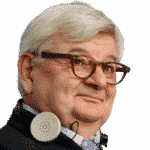We all think, speak, and write within certain intellectual frameworks that we largely take for granted. But, eventually, the passage of time renders familiar categories and ideas obsolete. For example, who still talks about the “Soviet Union” today, apart from historians?
In a similar vein, this year’s presidential election in the United States was the most significant political event of 2024, and it will almost certainly be remembered as a historical turning point. The outcome will shape global events for decades to come.
The effects will be felt on two levels. The first is the more immediate, practical, operational level of day-to-day governance. With Donald Trump back in the White House, the US will withdraw from the Paris climate agreement, impose new tariffs on its trade partners, and launch a massive campaign to round up and expel millions of undocumented immigrants. Taken together, this all represents a fundamental shift in how the world’s most powerful country operates, and in what it represents.
Then there is the global dimension, where many scenarios are possible – from major power shifts to the dissolution of long-standing alliances and the disintegration of the world’s governing institutions and norms. What will happen to transatlantic relations? What about Ukraine? Will the US develop closer ties to Russia and other authoritarian regimes at the expense of the European Union and other allies?
Trump won decisively despite his contempt for democratic institutions, his efforts to overturn the 2020 election, and his subsequent 34-count felony conviction. Though voters know about his chaotic approach to governance, his habitual mendacity, and his sinister immigration policies, he won every swing state. Even with full knowledge of who Trump is, more Americans voted for him than for Kamala Harris.
We must not mince words: liberal democracy in the US has suffered a lethal blow. It will be under increasing pressure on both sides of the Atlantic, and there is no guarantee that it will survive. After all, can there be any future for the liberal West without the US as its leader? I believe the answer is no.
Trump will begin his second term with Republican control over both houses of Congress, and many observers expect the 6-to-3 conservative majority on the Supreme Court to back him unequivocally. In June, the Court ruled, in a case brought by Trump, that presidents enjoy broad immunity from criminal prosecution for “official” acts. Thus, he will be able to govern – indeed, to rule – unimpeded. There is nothing to stop him from reshaping American liberal democracy into an illiberal oligarchy.
Obviously, the pressure on European democracies to contribute more to their own security will intensify. But Trump has no interest in strengthening the EU – quite the opposite, in fact – and the EU’s capability to advance independently without the tacit support of the US is doubtful. Doing so would require a fundamental shift in Europeans’ political mentality, and such a change is currently nowhere in sight. Moreover, the Franco-German engine that has always propelled the EU is no longer operational, and no one knows when, or if, it will be restarted.
Another major issue is the Israeli-Palestinian conflict. Will the current Israeli government now rush to annex the West Bank? What will it do about Iran, which has been amassing near-weapons-grade uranium? All signs point to a major war in the region – to a violent restructuring that will bring anything but peace or even a lasting ceasefire.
That brings us to the final, all-important question: What will the world look like without a liberal West? For decades, the transatlantic alliance projected power (both hard and soft) and modeled the values that underpinned a cohesive global order. But now the global order is in the midst of a chaotic transition.
If Europe fails to come together at this moment of tumultuous change, it will not get a second chance. Its only option is to become a military power capable of protecting its interests and securing peace and order on the world stage. The alternative is fragmentation, impotence, and irrelevance. The challenge is compounded by a massive technological shift toward digitalization and AI, as well as by Europe’s demographic crisis. Though the continent has too many elderly people and too few young people, it is increasingly opposed to immigration.
So, what now? Will Europe prepare itself, or will it revert to a structure resembling the one that followed the 1814-15 Congress of Vienna, in which Russia’s influence was dominant and pervasive? Europeans woke up on November 6 to a result that will affect them more profoundly than all their own elections combined. Trump will not only change America (for the worse); he will also shape European history – if we let him.
Joschka Fischer was Germany’s foreign minister and vice-chancellor from 1998 to 2005 and a leader in the German Green Party for almost 20 years.

